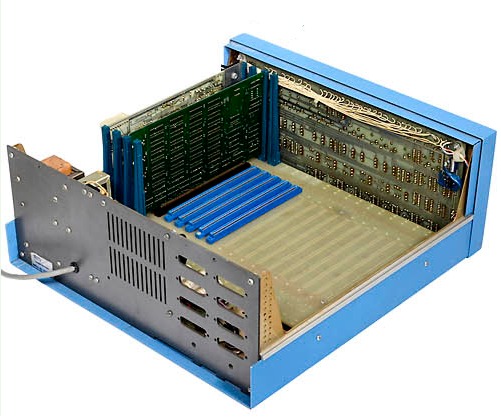| Altair - The First PC |
| Written by Harry Fairhead | |||||||
Page 3 of 3
A BASIC interpreterPerhaps the most profound effect of the Altair was on the young Paul Allen, a life long reader of Popular Electronics, and his friend Bill Gates. Allen saw the cover showing the mocked up Altair and rushed to show Gates. They both decided that the time had come and planned to write a version of BASIC for it. The rest of the story, you probably know! Ed Roberts and the MITS people in general were not at all sure that their machine was up to running BASIC and anyway to do it properly it needed a serial interface and an ASR33 Teletype for I/O. Gates and Allen wrote their BASIC interpreter using an Altair simulator on a PDP minicomputer. When Paul Allen tried it out for the first time on the real thing it worked and he and the MITS people were amazed to see their machine do something real - even if it was only adding 2 and 2. Roberts offered Allen and Gates a job and a contract. The availability of a real language made the Altair even more attractive and while Allen and Gates used the Altair to sell their BASIC the truth is that it was more likely that their BASIC sold the Altair. Bill Gates and Roberts argued about almost anything. Roberts clearly thought that Gates was too smart for his own good and the personalities clashed. MITS was run as a chaotic organization and Gates didn't like it much. The memory expansion boards that were needed to run his Microsoft BASIC rarely worked and other hardware advances were well behind schedule. MITS also started work on a new machine the Altair 680b - a 6800 based version. It wasn't a great success.
The Altair was taken seriously! As time went on MITS found that an increasing slice of the market was being taken by startup companies. Roberts became increasingly difficult to deal with and claimed that Microsoft BASIC was in fact MITS BASIC. He decided to sell MITS and saw the BASIC license as the most valuable part of the property. In 1977 Roberts sold MITS to Pertec, a disk drive manufacturer, for several million dollars of stock. Pertec lost the BASIC license back to Microsoft and it became the foundation of the technology giant that we know today.
Ed Roberts with an Altair Creator of the First PCDespite having created the first PC, Ed Roberts left the industry and retired to a farm. A few years later he sold the farm and trained as a family doctor and later practiced in a small town in Georgia where, despite the fact that he kept an Altair 8080 in his office, few realized that he had a part to play in the starting of the personal computer revolution. When Ed Roberts died in 2010 at age 68, Bill Gates and Paul Allen issued a joint statement remembering him and his role in the PC industry. "Ed was willing to take a chance on us—two young guys interested in computers long before they were commonplace—and we have always been grateful to him ... We will always have many fond memories of working with Ed." Altair As A Trendsetter On the hardware front, the Altair opened the way for all the personal computers that would follow. It was quickly cloned by the IMSAI 8080, an imitation that was arguably more successful than the original. Two years later the Apple entered the landscape and in 1981 the IBM PC came on the scene. Between these two dates the Atari, the BBC Micro and the Commodore PET plus dozens of others had made for a competitive market. Now all of these famous names have been relegated to history and they are now worth more than ever. An Altair 8080 put up for auction in May 2013 sold for 8607.69 euros, over $11,000.
Related ArticlesCreator of First Personal Computer Dies Bill Gates - Before He Was Famous Steve Jobs and the Early Apple Years Computer History Up For Auction The SWTP Effect - How The Microcomputer Revolution Started In The UK
To be informed about new articles on I Programmer, sign up for our weekly newsletter, subscribe to the RSS feed and follow us on Twitter, Facebook or Linkedin.
Comments
or email your comment to: comments@i-programmer.info <ASIN:0071358927> <ASIN:078214330X> |
|||||||
| Last Updated ( Tuesday, 01 February 2022 ) |




